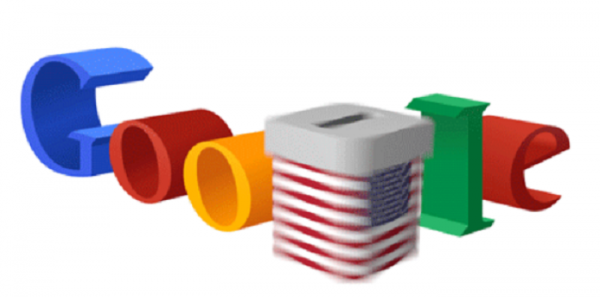

Politics nowadays aren’t exactly squeaky clean. Then again, when was it ever? With all the negative information on TV and the internet available about almost every candidate, it gets tougher and tougher to decide between the lesser of two, three or even ten evils. In these trying times, even the undecided can’t put their fates at risk at the toss of a coin or a roll of a die. What do we need? More information. Good information about who to vote for. Where do we find it? Google, Bing, Yahoo, Wikipedia, whatever could float the Titanic. But Google is where most people are at. Google is still the current President of Search.
If possible, certain parties could influence Google into turning someone into the Messiah and the other into the Anti-Christ by pointing people to all the “good news” about certain candidates. Someone could for example enter a candidate’s name and the search engine will result in the “Top Ten Projects of Mr. X”, “Mr. X, Gulf War Hero”, “How Mr. X Saved My Cat”, “Mr. X Feeds the Homeless”, “Mr. X Beats Chuck Norris”. I’d buy him for a dollar, but no one beats Chuck Norris.
Dr. Robert Epstein, senior research psychologist of the American Institute of Behavioral Research and Technology suggested that the scenario above is very much possible. How did he come to the conclusion? He and his team subjected about 4,500 undecided voters to rigged search results both in the US and in India. After 15 minute search sessions, approval ratings rose for the study’s favored candidates. This means that if some party gets the algorithm used in this study, the others’ chances of winning could drop. Google of course denies that its system could be rigged to favor certain parties or individuals. It’s a matter of whatever the user types in and Google as always will give out “relevant answers”.
“How does providing ‘relevant answers’ to election-related questions rule out the possibility of favoring one candidate over another in search rankings?”
–Robert Epstein
According to Epstein, Google’s denials don’t provide much comfort. That the possibility of manipulation is still there and search results are “well within Google’s control”. It’s not exactly the first time media giants have influenced national elections. As per Epstein, as far back as 1876, Western Union used its telegraph network and the Associated Press to post positive stories about presidential candidate Rutherford Hayes. Hayes did win but just by a hair. It could have been different if people didn’t receive anything election-related from Western Union. Even if some party doesn’t lobby its way into Alphabet, someone at Google could be still be paid to do some clandestine code tweaking.
If so, does the voting public stand a chance? They do. Stay away from Google or any search engine, at least until someone gets elected. Watch public debates. Listen to the candidates themselves for hints of sincerity. Ask mom. Visit the candidates’ sites themselves and verify the programs they listed there. Probe your memory for accolades and scandals candidates were involved in. That’s a lot of work. It’s that or having to put up with whoever wins for the next four years.
To be fair to Google and other search engines, there’s the other chance they’re not rigged and that they’re basically the source of information needed to check out the unknowns, the new faces or the old timers. It’s either Google or voting blindly. After all, not everything is on TV, not everyone has the time to watch FOX or CNN. But almost everyone is connected and can Google their way into information about their candidates.
Thus, whoever can work their way into Google to control it, could swing the elections to their favor. Aaaaand we’re back to square one. Only one thing left to get out of this loop, “Trust the force, Luke”.

